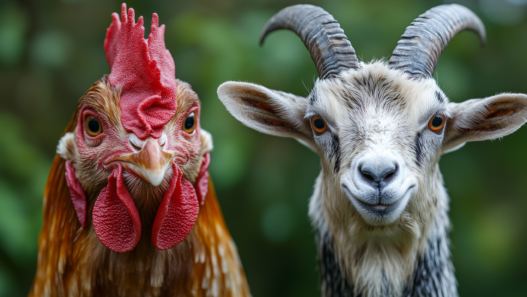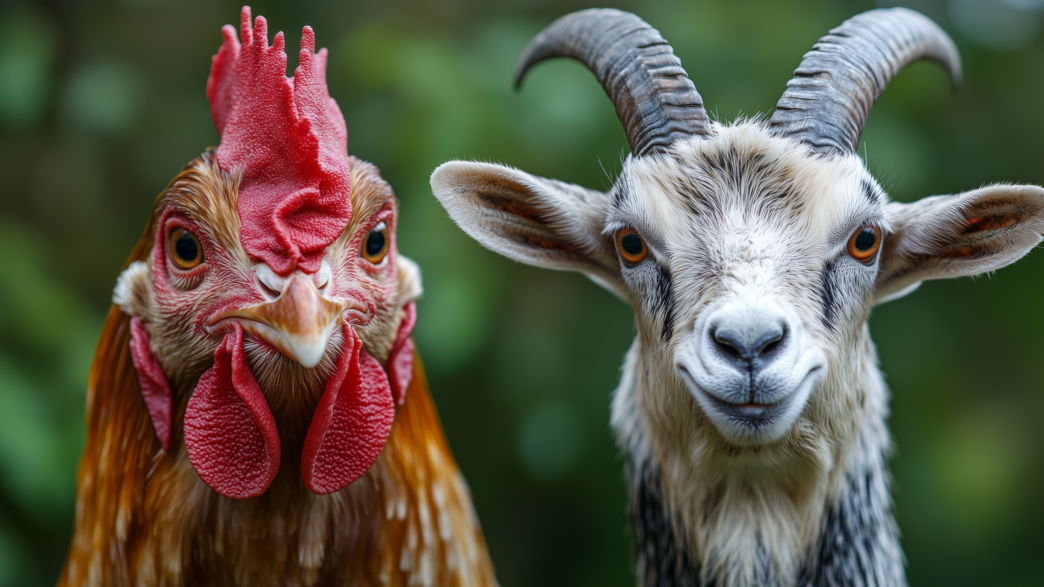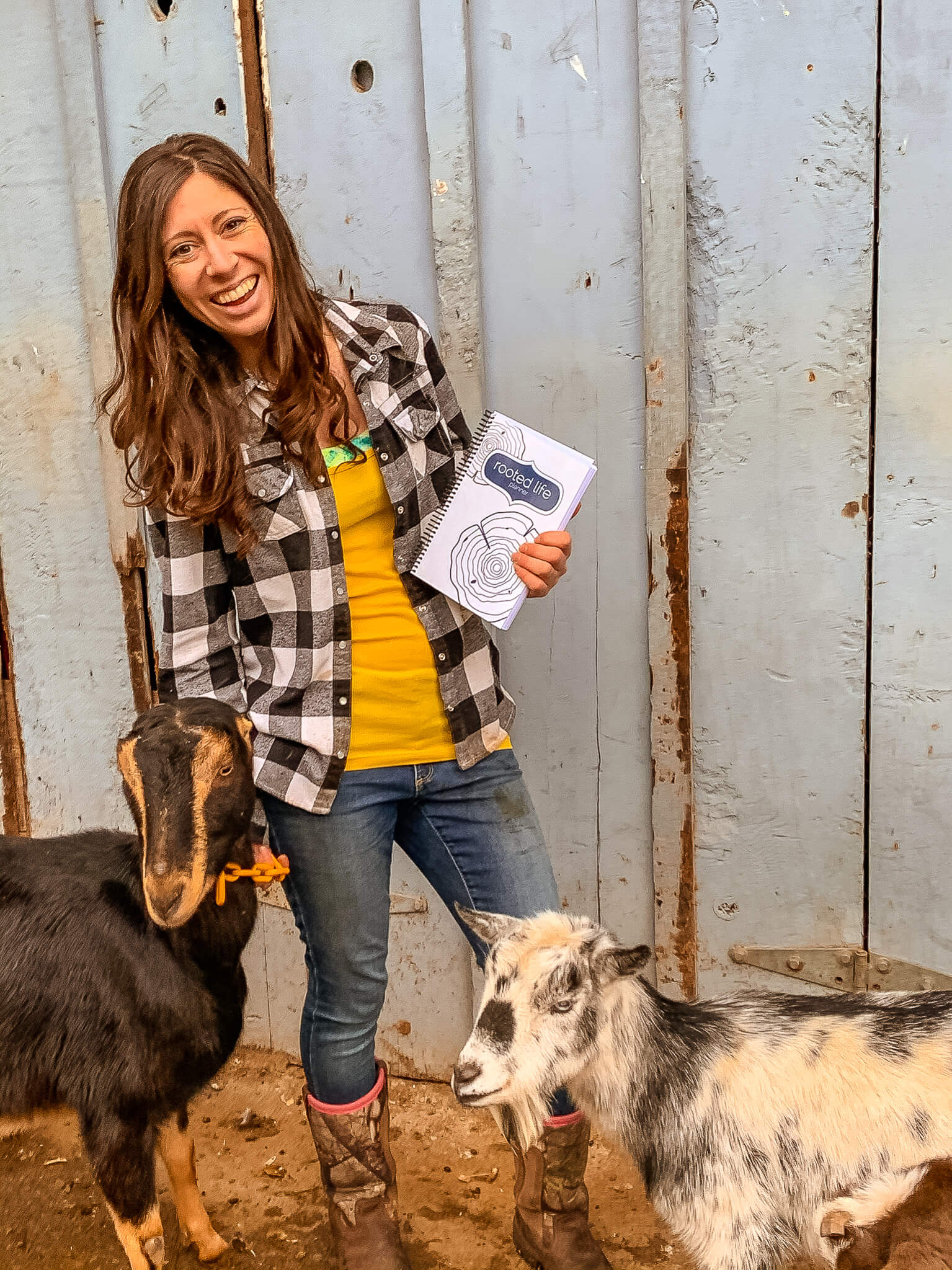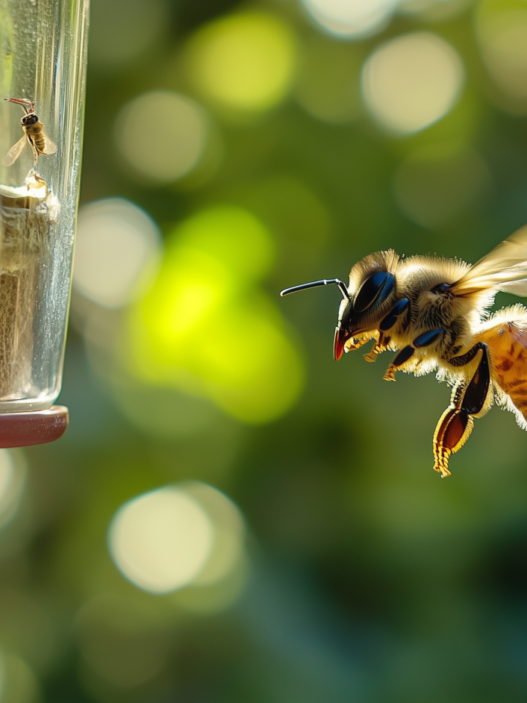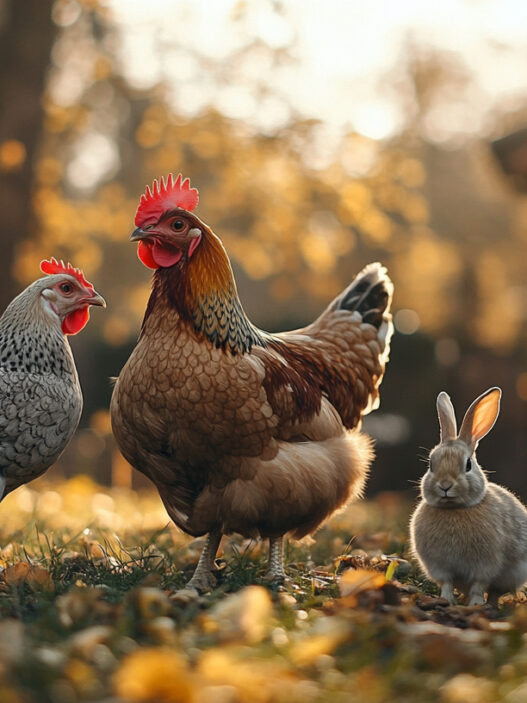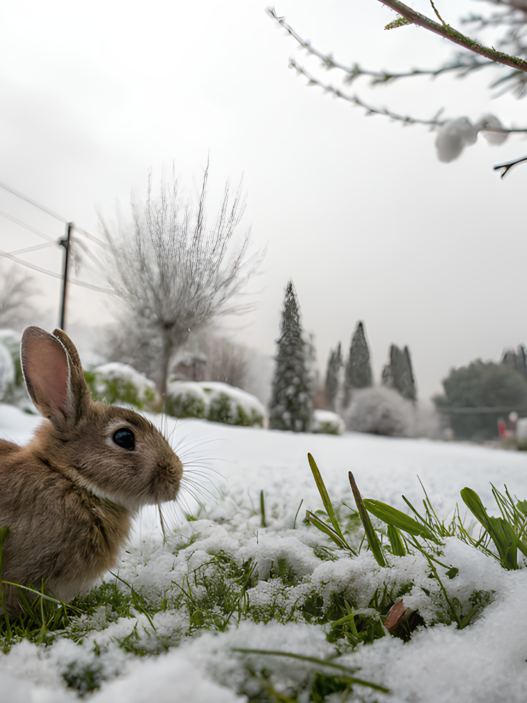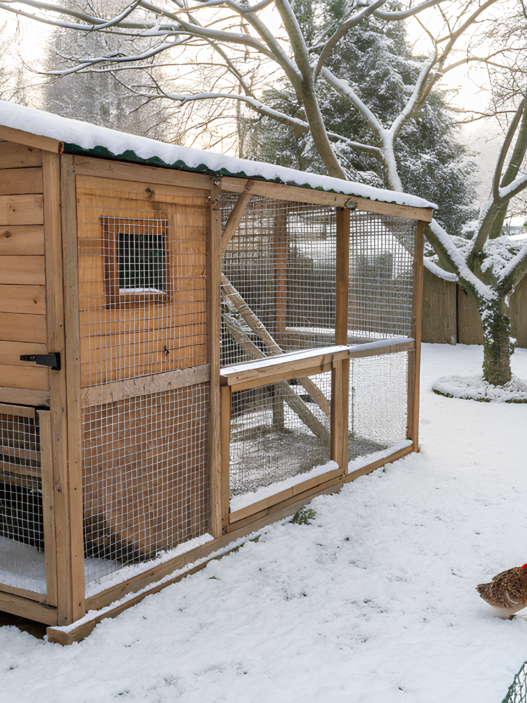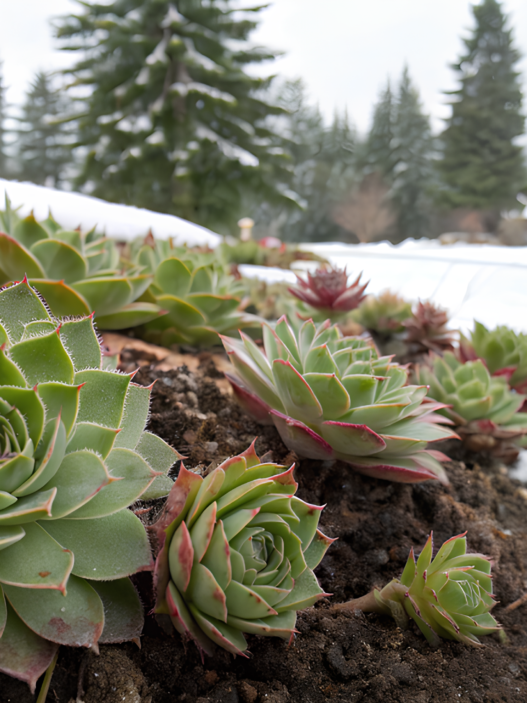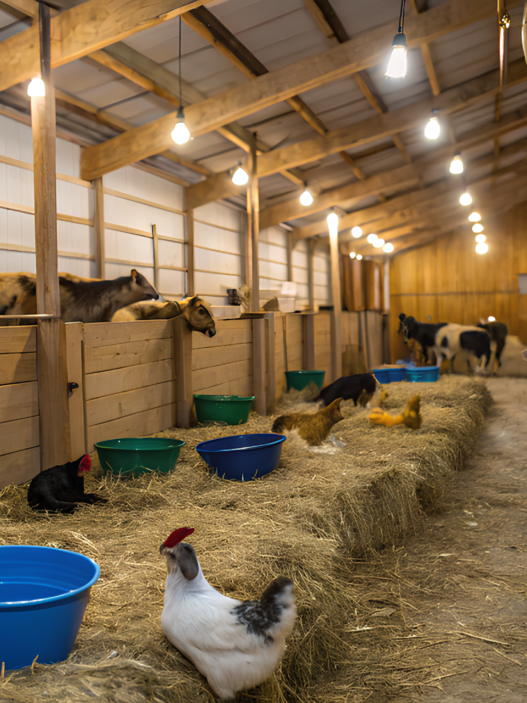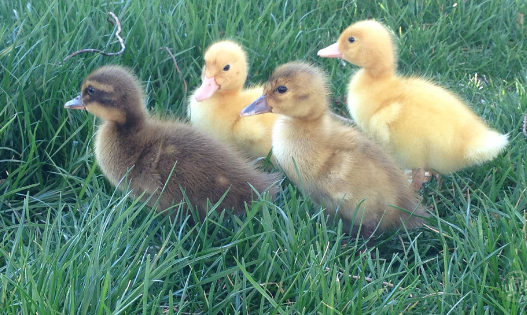When Lindy and I first started our homestead, we found ourselves asking the same question that many new homesteaders do: Can you keep chickens and goats together? The idea of combining two species in one space seemed practical, especially with limited land, but we weren’t sure how it would work out. After all, these animals have different needs, behaviors, and dietary requirements. But we were determined to make it work, and with a little trial and error, we found that it’s definitely possible—with some important precautions.
In this article, I’ll share everything we’ve learned about keeping chickens and goats together, including the benefits, challenges, and the steps you need to take to create a harmonious homestead.
Can You Keep Chickens and Goats Together?
The short answer is yes, you can keep chickens and goats together, but it’s important to go into it with your eyes wide open. There are some real benefits to this setup, but also a few challenges that you’ll need to navigate.
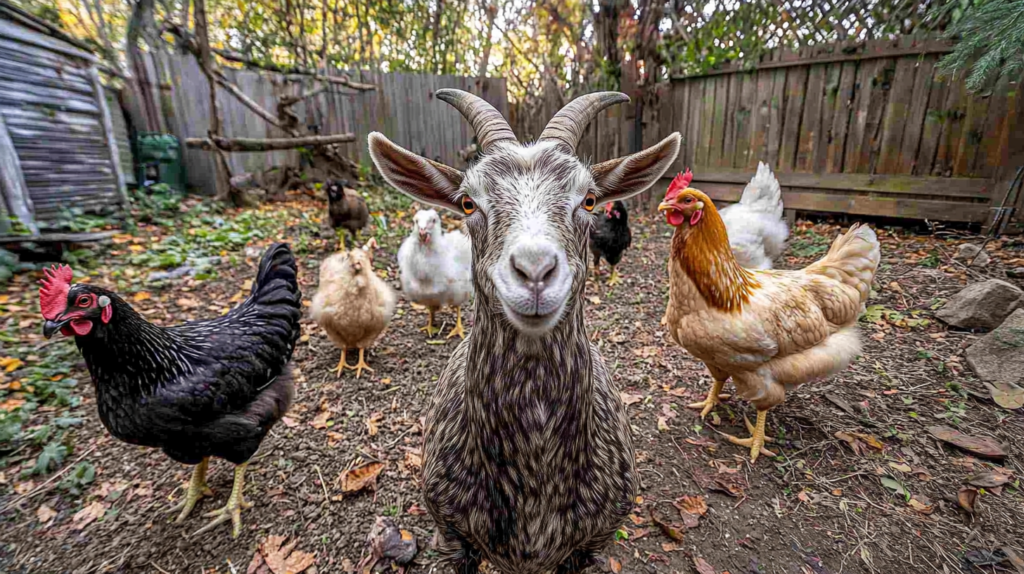
Pros of Keeping Chickens and Goats Together
One of the first things we noticed when we let our chickens and goats share space was the mutual benefits they provided each other. Here are some of the advantages we’ve observed:
- Pest Control: Chickens are natural foragers, and they love to peck around in the dirt for bugs. When you keep them with goats, the chickens will help control pests like flies and ticks that might otherwise bother your goats. In our experience, the reduction in pests was noticeable within just a few weeks!
- Shared Space: If you’re working with limited land, combining your chickens and goats can be a great way to maximize your space. Both animals can roam together, making use of the same pasture or yard area. We found that our goats and chickens actually enjoy each other’s company, often resting in the shade together on hot days.
- Companionship: Goats are social animals, and while they do best with other goats, they don’t mind having chickens around. The presence of chickens can add variety and enrichment to the goats’ environment, keeping them entertained and engaged.
Cons and Challenges
While there are definite benefits, there are also challenges to keeping chickens and goats together. These are some of the key issues we encountered:
- Disease Transmission: One of the key concerns when keeping chickens and goats together is the potential for disease transmission. For example, coccidiosis, a common parasitic infection in poultry, can pose a risk to goats if the shared environment is not properly managed. According to research published in Poultry Science Journal, maintaining cleanliness and performing regular health checks are crucial to preventing cross-species contamination.
- Diet Differences: Goats and chickens have very different dietary needs. Goats are browsers, preferring to eat shrubs, weeds, and hay, while chickens thrive on grains, seeds, and insects. The problem arises when goats get into the chicken feed, which can be harmful or even toxic to them. We had to get creative with our feeding setups to keep everyone healthy.
- Space Requirements: Both animals need plenty of space to roam and express their natural behaviors. Overcrowding can lead to stress, aggression, and health problems. Initially, we underestimated how much space our goats would need, leading to a few scuffles between the goats and the more territorial chickens.
Precautions and Preparations
If you’re committed to keeping chickens and goats together, it’s important to take some precautions to ensure everyone stays healthy and happy.
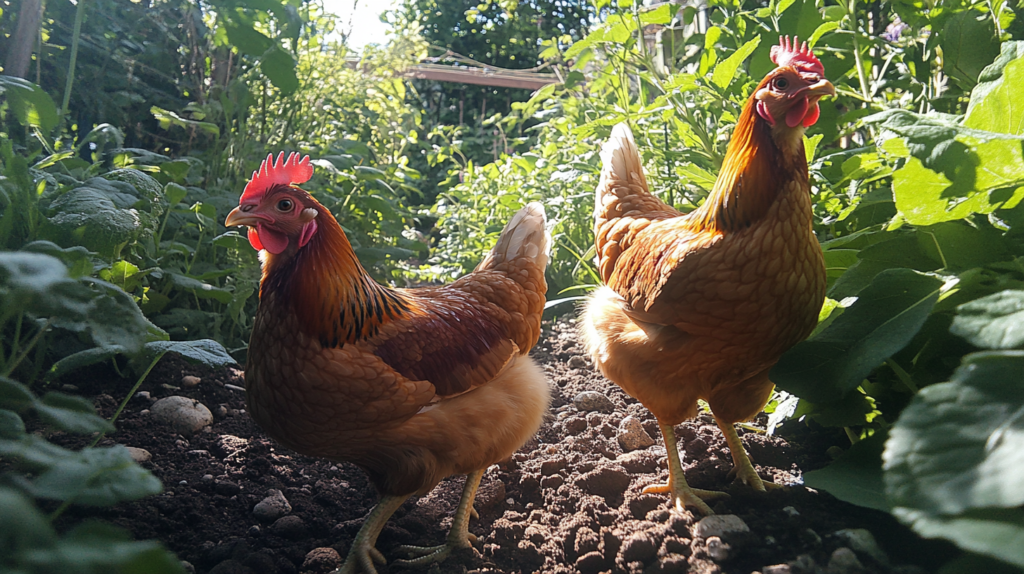
Housing Considerations
One of the first things we did was make sure our goats and chickens had separate sleeping areas. Goats need a dry, draft-free shelter, especially in colder climates, while chickens prefer a coop that’s secure from predators and provides nesting boxes.
- Our Setup: We built a small barn for our goats with a connected, predator-proof chicken coop nearby. The chickens have their own roosting area inside the coop, while the goats sleep in the barn. This setup allows both animals to have their own space while still being close enough to share the pasture during the day.
Feeding and Diet
As mentioned earlier, diet is one of the most critical considerations when keeping chickens and goats together. Goats are curious creatures and will try to eat anything they can reach—including chicken feed. But chicken feed is high in calories and can cause serious health issues in goats, including bloat and urinary calculi.
- Practical Tips: We installed hanging feeders for the chickens, placed at a height the goats can’t reach. We also feed our goats in a separate area of the barn to prevent any accidental snacking on chicken feed. It took a few tries, but we eventually found a system that keeps everyone fed and healthy.
Health and Safety
Keeping a mixed-species environment means you’ll need to be vigilant about health and safety. Regularly cleaning the shared space, keeping it dry, and monitoring your animals for signs of illness are all essential.
- What We Do: We clean out the barn and coop weekly, ensuring that bedding is fresh and dry. We also perform regular health checks on both the chickens and goats, looking for any signs of illness, such as lethargy, loss of appetite, or abnormal behavior. Prevention is key, and staying on top of their health has helped us avoid major issues.
How to Keep Chickens and Goats Together Successfully
Once you’ve got the basics covered, there are some additional tips and tricks that can help you maintain a peaceful, productive environment for both your chickens and goats.
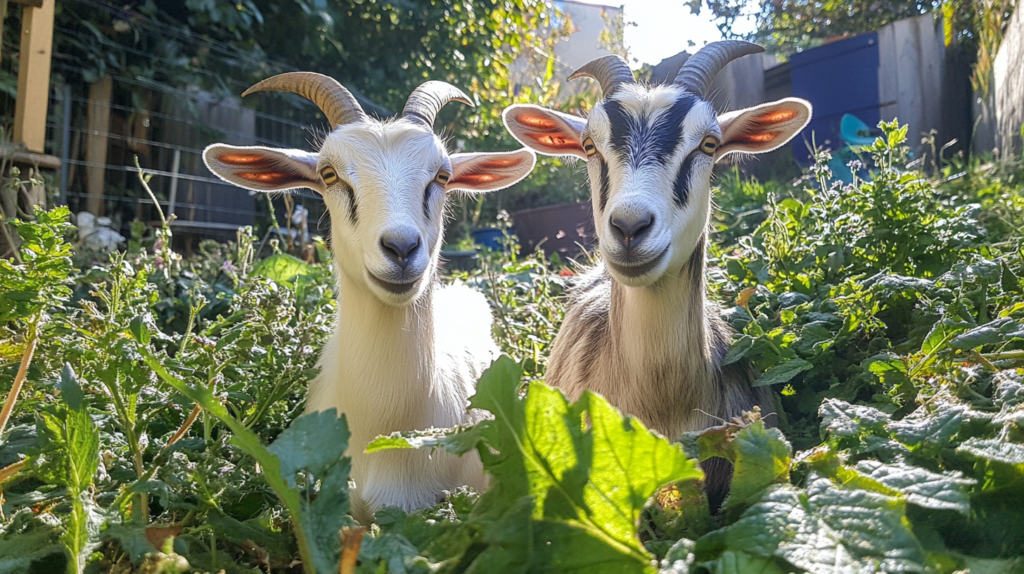
Creating a Harmonious Environment
The key to success is creating an environment where both species can thrive without getting in each other’s way.
- Gradual Introduction: If you’re introducing chickens and goats to each other for the first time, do it gradually. Start by allowing them to see each other from a distance before letting them share the same space. We found that our animals adjusted better when they had time to get used to each other’s presence.
- Providing Enrichment: Both chickens and goats benefit from enrichment activities. For chickens, this might mean providing dust baths or hanging treats for them to peck at. For goats, it could be climbing structures or toys. We noticed that when our animals were engaged and entertained, they were less likely to bother each other.
Monitoring Behavior
Even with the best setup, you’ll need to keep an eye on how your chickens and goats interact. Watch for signs of stress, such as chickens becoming too territorial or goats showing signs of frustration.
- Adjustment Period: Expect an adjustment period where you may need to intervene to prevent scuffles. Over time, though, most animals will settle into a routine. We had a few tense moments early on, but with patience, our animals learned to coexist peacefully.
Maintenance Tips
Maintaining a clean, safe environment is crucial when keeping chickens and goats together. Regular maintenance not only keeps your animals healthy but also helps prevent potential conflicts.
- Waste Management: Goats and chickens produce a lot of waste, so regular cleaning is a must. Consider using deep bedding in the coop and barn to help manage waste and keep the area dry. We use straw and wood shavings, which compost well and help keep the area odor-free.
Common Questions and Misconceptions
Let’s address some common questions and misconceptions about keeping chickens and goats together:
Can Goats Eat Chicken Feed?
Absolutely not. Chicken feed is formulated for poultry, not ruminants like goats. It can cause severe health issues in goats, so always keep chicken feed out of reach.
Do Chickens Stress Out Goats?
In our experience, no—at least not once they’ve had time to adjust to each other. However, it’s essential to monitor their interactions, especially in the beginning, to ensure everyone is comfortable.
Is It Necessary to Separate Them at Night?
Yes, it’s a good idea. Chickens are more vulnerable to predators at night, and goats need a dry, draft-free shelter. Separate sleeping areas keep both species safe and comfortable.
Share Your Experience!
So, what do you think? Are you ready to try keeping chickens and goats together on your homestead? We’d love to hear about your experiences! Share your setup on Instagram using the hashtag #HomesteadHarmony and tag us for a chance to be featured on our site. Plus, we’re offering a special prize for the most creative and harmonious chicken-goat setup!
And if you’re still unsure or have more questions, drop them in the comments below. We’re here to help you create a peaceful, productive homestead where all your animals can thrive!
